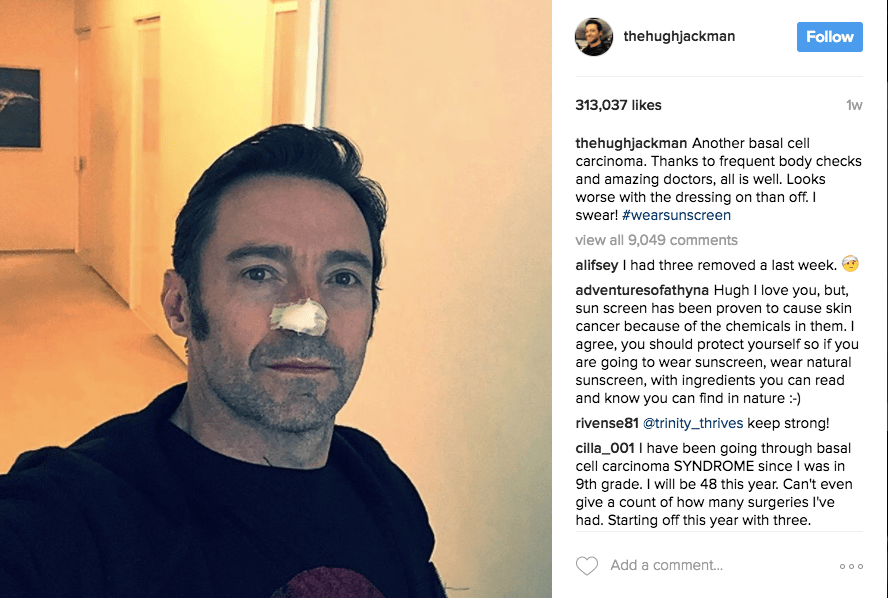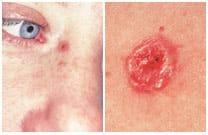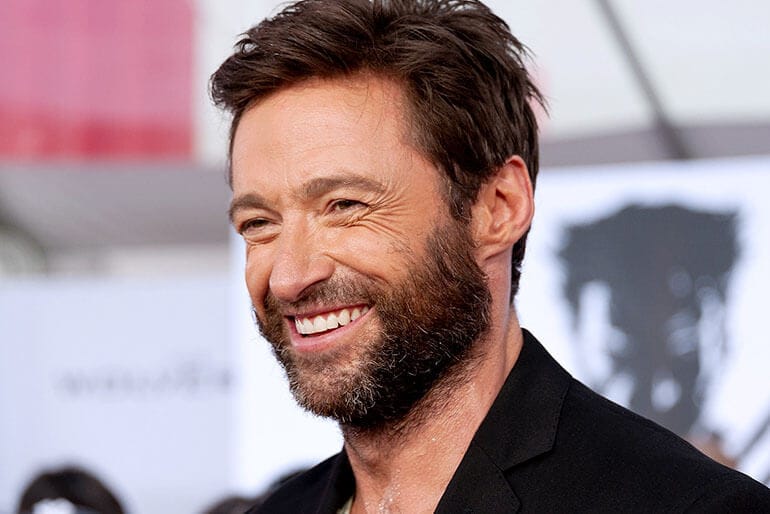Our favorite “Wolverine,” celebrity Hugh Jackman, recently posted a selfie on Instagram, showing a bandage on his nose and reporting his recovery from skin cancer treatment. This is the SIXTH (!) episode Jackman has reported – all Basal Cell Carcinoma— the most common type of skin cancer.

The actor shared that he spent a lot of time in the sun growing up in Australia, never using sunscreen. He first reported skin cancer on his nose in 2013 and has been forthcoming with his fans about each subsequent case.
Read on to learn more about this common skin cancer and how to recognize concerning signs on your own skin:
What is Basal Cell Carcinoma?
Basal Cell Carcinoma (BCC) is the most common type of skin cancer in the U.S. Approximately 4 million new cases are diagnosed each year.
Is it aggressive?
In general, Basal Cell Carcinoma is a kind of cancer that almost never metastasizes (spreads beyond the skin). However, if not treated, BCC can continue to grow and spread locally in the skin. The longer the cancer is allowed to grow, the more challenging it can be to remove. This may lead to scarring and– in extreme cases–disfigurement.

www.skincancer.org
What does Basal Cell Carcinoma look like?
Commonly, BCCs can appear as pink shiny bumps (often described as “pearly” in appearance), or reddish scaly patches that do not heal. If a lesion starts bleeding or developing a sore, this should be promptly evaluated by your dermatologist.
Where do BCCs occur?
Basal cell carcinomas commonly develop in areas of heavy sun damage, like on the face, ears, neck, scalp, and trunk. The nose is a very common location for BCCs to grow.
How is Basal Cell Carcinoma treated?
When BCCs occur on the face (like nose, ears, cheeks) or neck, the treatment of choice is a procedure called Mohs Surgery, which is a technique that takes the smallest possible piece while evaluating the entire surgical margin. This is performed by a fellowship-trained dermatologic (Mohs) surgeon. If not on the head or neck, BCCs can be surgically excised or treated with other approaches depending on a number of factors.
When superficial, BCCs can also be treated with a prescription chemotherapy cream and monitored by your dermatologist, or treated with curettage and cautery (“burn and scrape” method).
Read more about Australia’s skin cancer prevention efforts here.
Read about skin cancer here.
Learn more about Mohs surgery here.
REN Dermatology is a comprehensive medical and cosmetic skincare center. Our board-certified dermatologists, Dr. Jennifer Lee and Dr. Christina Gelbard, specialize in skin cancer prevention, diagnosis, and treatment. Come see us for your yearly skin check-up today! Better safe than sorry!
By: Dr. Jennifer Lee

